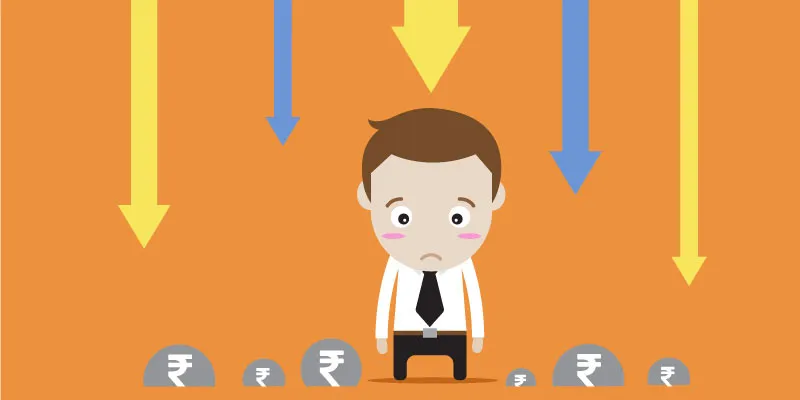Avoid these 5 personal finance mistakes
It goes without saying that money is of utmost importance and if not dealt with in the right way, it could land you in an in some serious financial and personal stress. What you are today is the result of all the financial decisions you have taken in the past. Any decision can make it or break it for you. The good news is that you can prevent committing these mistakes.
Here are some common personal finance mistakes that people commit. Although they may appear harmless at first, they will take a toll on your quality of life eventually. So here’s what you need to stop doing

Image : shutterstock
- Meeting debts with savings
Withdrawing money is easier than depositing it. It is easy kill your savings to pay off your debt, but rebuilding and replacing that amount is a mammoth task. You might not feel it now, but a few years down the line, you will be sorry and agree with us.
The best approach is to automate your payments. This teaches you not just to save more, but also to live on less money. Spending your savings early in life could financially impair you in the future. Automating debt payments from your paycheck helps keep your debt in control without eroding your savings.
- Not maintaining an emergency fund
Most families rely on the paycheck for survival. In such cases, a small disturbance – say a medical emergency – could result in a financial disaster. Imagine you lose your job on a short notice. Without an emergency fund, you won't even have enough money to meet your basic needs. Maintain an emergency fund averts such situations.
The money from this fund can be used to meet urgent payments like medical bills. Start with at least a month’s living expenses and grow it subsequently because life isn't perfect and disasters can't be predicted. Better be prepared than sorry.
- Spending without a budget
Your financial security in the future depends on how you are spending your money now. Making a budget might seem time-consuming, but it's worth every minute you put into it. Plan your budget before spending or making large payments. You don't want to end up feeling: "Where did all my money go?"
- Investing in depreciating assets
Borrowing money to purchase assets like cars is an example of investing on a depreciating asset. Its value is going to decrease as time proceeds. Avoid spending a lot on assets them if you don't need it and if your financial condition doesn't allow meeting the loan with ease. If you require one, settle on something smaller and less expensive. These are fruitless investments which will add nothing to your net worth.
- Lending out to families and friends
You would love to help relatives and friends in need of money. But not at the cost of your monthly budget or savings. In fact, banking on them to return it as promised is mostly a bigger mistake. Lend the amount you can forget about, and will not bother your financial situation at all. Either way, money between relationships is never a good idea.
Planning your finances is vital to leading a happy life. Avoid investing in stocks or additional insurances policies. Don't hesitate to consult a financial adviser if you are not able to figure out how to manage your money. They are experts and will help you have an edge over your financial assets. As time goes by, you will gain more experience and have more control over your finances.
(Disclaimer: The views and opinions expressed in this article are those of the author and do not necessarily reflect the views of YourStory.)







